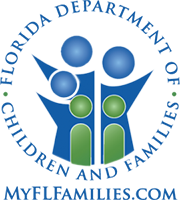Determining if you need alcohol rehab is a difficult and oftentimes, heart-wrenching decision. For most people, the idea of changes in life is anxiety-provoking and something we try to avoid, however, receiving treatment at an alcohol rehab may be just what you need to overcome hurdles you’re facing. To help decide if you need alcohol rehab ask yourself these questions:
- Have you tried to stop drinking or cut back on drinking and have been unsuccessful?
- Do your thoughts always seem to be related to drinking?
- Has your drinking impacted your job or relationships with friends/family?
- Have you had legal troubles as a result of your drinking?
- Do you have to drink more than you used to produce the same effects?
- Do you feel like you need to lie about how much you drink or do you attempt to hide it?
- Does your drinking often put you in dangerous situations, like driving while drunk?
- Do you experience withdrawal symptoms when you don’t drink for a while?
- Loss of interest in things you once enjoyed
Signs and Symptoms of Alcohol Use Disorder
The signs and symptoms of alcohol use disorder can sometimes be difficult to detect as social drinking has infiltrated nearly every social event and alcohol is a widely available substance. Signs and symptoms of alcohol use disorder include:
- Inability to control how much you drink or stop drinking altogether
- Having frequent cravings to drink
- Loss of job, legal troubles, or difficulty in school as a result of drinking
- Continued drinking despite the issues it has caused in your life
- Avoiding social situations because of your drinking
- Development of tolerance to alcohol
- Experiencing withdrawal symptoms when you don’t drink
Alcohol Withdrawal Symptoms
Withdrawal symptoms can range in severity and can either begin within hours or days after your last drink. Symptoms may include:
- Anxiety, agitation, restlessness
- Auditory, visual, or tactile hallucinations
- Seizures
- Difficulty sleeping
- Hand tremors
- Racing heart rate
- Sweating
Types of Alcohol Rehab Programs
Fortunately, alcohol rehabs have come a long way in recent years, and there are now more options for treatment than ever. Knowing your options can help you determine what would be the best course of treatment for your unique circumstances.
- Detox–This is often the first step of treatment because of the potential for severe withdrawal symptoms. The purpose of a detoxification program is to help you safely and effectively rid your body of alcohol in a medical setting that can provide comfort measures, such as medications, should you need them.
- Residential–After completing detox, the most natural step is receiving treatment at a residential treatment facility. These intensive programs provide a variety of therapies to help you address the root causes of addiction and learn new ways to cope. Residential treatment typically lasts several weeks and outpatient programs usually follow.
- Outpatient–This provides the opportunity to build on what you learned in residential as well as dive deep into relapse prevention. This is the most flexible of alcohol rehab programs as you live at home or a halfway house while receiving treatment, and return home each day. It is also usually the cheaper form of treatment.
Does Insurance Cover Alcohol Rehab?
Alcohol addiction is a disease affecting millions of people worldwide, so more often than not, your insurance will pay for most or all of the cost of alcohol rehab. It is important to talk to your insurance prior to attending treatment to determine what your financial obligations will be so there are no surprises when you arrive. The American Addictions Center has a tool to help you easily determine what your insurance will cover.
How to Make Alcohol Addiction Treatment Last Long Term?
To make alcohol addiction treatment last long term, stay engaged in treatment for as long as possible. Continuing on to outpatient programs or even attending AA meetings after you complete inpatient treatment is your best bet at success in recovery. You will make a lot of changes on your journey to recovery and you will need a lot of support once you get there. Finding that support in the “family” that you will meet along the way greatly improves your success as well. Lastly, being honest with yourself and those around you should take priority so you can get help if you’re struggling.
For more information about alcohol rehab, please call the treatment specialist at The Source at (800)204-0418 or visit them online at www.thesourceaddictiontreatment.com.

 The Source quite frankly saved my life and got me back on track, never giving giving up on me. When you are thinking about and looking through all of the different places to go for treatment this is the one that should stand out from the rest.
The Source quite frankly saved my life and got me back on track, never giving giving up on me. When you are thinking about and looking through all of the different places to go for treatment this is the one that should stand out from the rest.




























